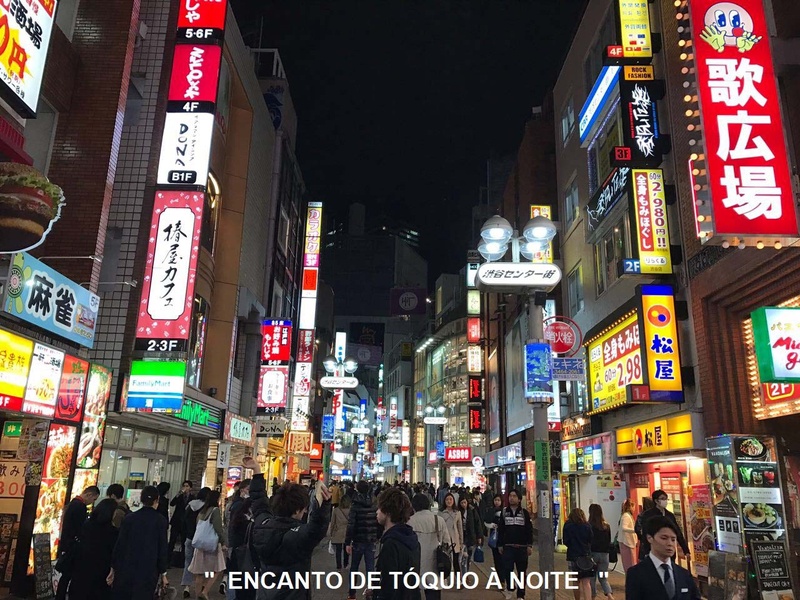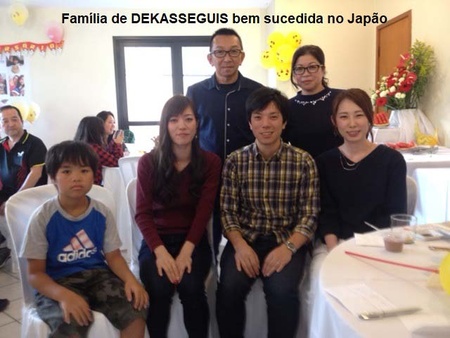“Mr. Higuchi, I read the news that Japan will need more than 300,000 foreign workers in the next five years. Do you think it’s worth working in Japan?” asked me a senior Nikkei who seemed to know me, while I was waiting for the lecture “The Brazilian Community in Japan”, by emeritus professor at the University of Shizuoka – Shigehiro Ikegami – to begin. at Japan House in São Paulo, on February 20th.
The question asked so informally and abruptly deserves reflection before being answered. If the primary objective is purely economic, that is, to earn money, saving what you can and returning to Brazil with a reasonable reserve that allows the worker to acquire their own home or start an activity as an entrepreneur, it does not seem like a favorable moment to me. . At the very least, the interested party would deserve a greater assessment of the pros and cons.
Good times
Comparing to the situation twenty or thirty years ago, when the Japanese economy sailed in calmer waters and opened its doors to the decasseguis Brazilians, the remuneration paid was more attractive, overtime was more voluminous. Currently, real earnings have decreased and overtime, the “plus” that attracted workers and meant a considerable boost in the pocket every month, has become scarcer, reduced or, in some cases, disappeared. In such a way that to have a surplus and generate savings at the end of each month, it would only happen at the cost of enormous effort and sacrifice. I would only live to work! No leisure, travel, restaurants. Would it be worth it?
On the other hand, if the extreme and necessary decision to move to Japan is a result not only of the lack of work options here in Brazil, but the result of a deep and well-thought-out assessment, prioritizing, mainly, the improvement in quality of life and even considering a long stay, I can guarantee that the change will be worth it, it will be very likely to work.
A veteran Brazilian decasségui once said: “In Japan, even in a less qualified job you can live reasonably, you don't need so many resources to have security, education, health and even leisure!”
I have several relatives and friends who confirm this statement. They went there with their whole family, even with small children, or set up a home after staying for almost 30 years and adapted in such a way that the idea of returning to Brazil is a thing of the past. They managed to acquire their own house, their children have already married, some even with Japanese women (natives), grandchildren have appeared and the most valuable of achievements: the admission of a young member of the family to the local university, an important step towards advancement in the closed Japanese society . This achievement of young people approved in higher schools in Japan, although still timidly, has been occurring consistently in recent years, a fact highlighted and highlighted by Prof. Ikegami in his talk.
The decasseguis are coming back
In this sense, the news that the number of decasséguis is growing again in Japan after ten years of decline is still relevant. It coincides with the increase in unemployment in Brazil and the almost desperate need that Japan currently has to meet its demand for labor.
Between 1989 and 2018, there were three large flows of Brazilian emigrants – decasséguis – to Japan. Between 1989 and 2000, a strong crisis occurred in Brazil, with an increase in unemployment and a consequent increase in decasséguis in Japan, reaching approximately 150,000 Brazilian Nikkei in 1993. Unemployment here grew until 2000 and the number of decasséguis rose to almost 300,000 in 2005. With the serious global economic crisis in 2008, the opposite occurred with hundreds of decasséguis being forced to return to Brazil, dropping to 180,000 the number of decasséguis in Japan in 2013. With the new and recent crisis in our country, Brazilian Nikkei have been looking for Japan to work since 2015. Gradually increasing, this number reached 191,000 in 2018, according to data from the Consulate General of Brazil in Tokyo.
This demand coincides with Japan's need to attract more than 300,000 foreign workers over the next five years, according to a proposal recently presented by Japanese Prime Minister Shinzo Abe.
Japan is shrinking
The demographic crisis that is occurring in Japan is no surprise to anyone. It has been known and predicted for a long time. Japan's population is rapidly aging and shrinking. Thirty percent of the Japanese population is made up of elderly people and this number is expected to rise even further, to around 40% in 2050. Which, in addition to its very low birth rate, causes this phenomenon of the decrease in the active Japanese population. There was a reduction of almost one million people between 2010 and 2015, and in 2018, another 200 thousand fell.
To make the situation even worse, there is a growing increase in foreign tourists visiting Japan which, combined with the construction work and intense preparations for the Tokyo Olympic Games in 2020, result in an acute need for labor in the coming years.
Workers wanted
According to official estimates, there are 160 vacancies for every 100 workers. In other words, there are many vacancies available that older native Japanese cannot do and younger ones do not want or are not interested in doing. Hence the enormous problem that the Japanese government is seeking to resolve and, to do so, going against its own tradition as a country that has always avoided immigration, fiercely isolationist as it was until the mid-19th century. But Japan is changing, it is having to modernize rapidly. We can confess that this is even a question of survival for the Japanese country.
According to Prof. Ikegami, the passage of time is also felt among the members of the first waves of decasséguis who headed to the Japanese country. Those who went there when they were 18, 25, 30 years old are now 40, 50 or 60 years old. More experienced, more adapted, but older. Among the decasséguis there is also a need for renewal.
There are more than 300 thousand vacancies that will be available, but Nikkei be careful Brazilians who are dreaming of moving to the fascinating country of their ancestors. You need to be aware of the difficulties you will face. In Japan “hard work is valued and rules must be obeyed”! “You need to go there with a minimum of knowledge of the local culture and the norms of daily life.”
And, be prepared for the competition you will face when competing for a vacancy. Chinese, Koreans, Filipinos and Vietnamese, among others, are increasingly present in this internationalized Japan, not just as tourists, but working in industry, commerce and services.
Advice, no! Recommendation
In closing, I would like to return to my Nikkei friend's initial question, commenting that if you want to work and live in a country where almost everything works well, where there is order and discipline, where those who work have a dignified life, where there is respect, job opportunities , quality education, healthy life and where there is no violence. You can find all of this in Japan.
It's not a perfect country! It has some flaws (excessive work, language, customs, among others), but those who knew it really liked it!
You are the one who has to make this choice! Decide where you want to go and once you decide, don't stop until you reach it. I think it will be worth it!
Good luck!
© 2019 Katsuo Higuchi







